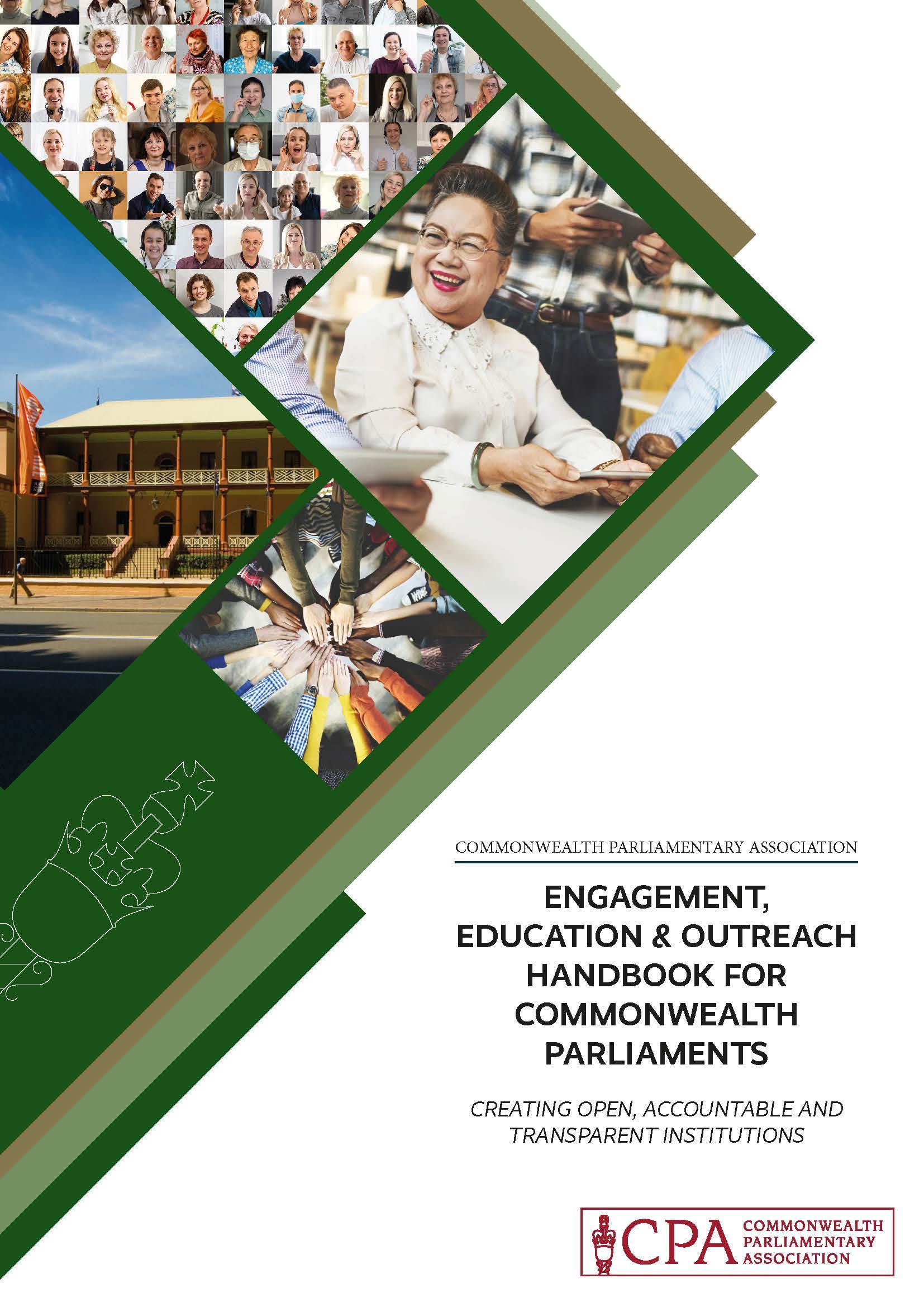
The Commonwealth Parliamentary Association launches a new education blog to mark the International Day of Democracy 2023 theme of ‘Empowering the next generation’
15 September 2023
International Day of Democracy, held each year on 15th September, is ‘an opportunity to review the state of democracy in the world.’
This year’s theme for International Day of Democracy, ‘Empowering the next generation’, focuses on young people’s essential role in advancing democracy and ensuring that their voices are included in the decisions that have a profound impact on their world. Empowering young people through education is a key focus.
Young people are the current and future custodians of democracy and, to mark the day, the Commonwealth Parliamentary Association (CPA) has launched a blog that celebrates the vital role of young people and education for peace, development and democracy.
2023 is also the ‘Commonwealth Year of Youth’, which gives an increased focus to the 60% of the Commonwealth’s 2.5 billion people who are aged under 30 years.
Our global experts write about young people and education:
- Dr Anne T. Gallagher from the Commonwealth Foundation asks if the tenth anniversary of the Commonwealth Charter is an appropriate moment to reflect on how well we are fulfilling its bold aspirations and connecting with both civil society and young people.
Today, the Commonwealth is seen to be standing at a crossroads, with the very identity of the organisation becoming less clear. Membership has expanded over recent years to include countries with looser ties to the Association’s values and history than older Members share.
Some argue that the Commonwealth is now merely an association of political convenience as opposed to one built on a determination to embody and uphold shared ideals and values. The Commonwealth’s 1.5 billion young people - whose attitude to the Association will surely determine its relevance in the future - are rightly asking whether the Commonwealth is fit to address modern-day threats to democracy, peace and the health of our planet.
And the story of the Commonwealth must evolve. We must reimagine our narrative to reflect the realities of the present and the aspirations of the future. We must do this not only for the 1.5 billion young people who will carry the mantle but also for all those who believe in the transformative power of the Commonwealth.
Read the full article in The Parliamentarian by clicking here.
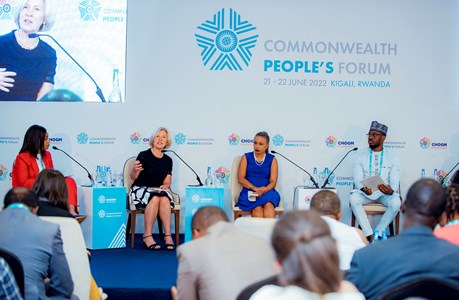
- Dr Joanna Newman, until recently with the Association of Commonwealth Universities (ACU), asks how we can invest in human potential through higher education.
As the only organisation representing higher education in the Commonwealth, our core belief is that higher education improves the lives of people everywhere. Through teaching and learning, universities shape generations of skilled, employable graduates – tomorrow’s leaders, teachers, law-makers, and innovators – whose knowledge and training bring social and economic developments to their societies and nations.
This brings me to another central tenet of the ACU’s work: the right to access higher education. This is a major challenge in many parts of the Commonwealth. Sub-Saharan Africa, for example, has a population of over a billion, 70% of whom are under the age of 30. Yet the gross tertiary enrolment ratio in the region is just 9.4%, significantly below the global average of 38%. Such figures are a stark reminder that access to higher education is still too often dictated by geography, wealth and circumstance.
Read the full article in The Parliamentarian by clicking here.
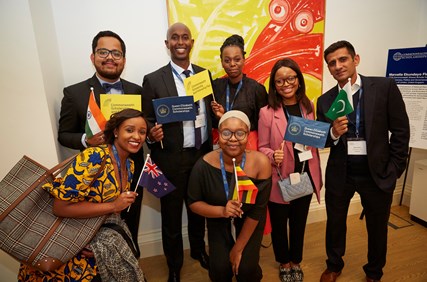
- Dr Venkataraman Balaji writes about the work of the Commonwealth of Learning (COL) in bridging the gap for adult learners as well as young people.
The Commonwealth Charter's commitment to ensuring access to essential human needs has energised COL's initiatives targeting youth. Through its well-regarded Open Schooling initiative, spanning countries across the Caribbean, Africa and Asia, the organisation's outreach towards out-of-school youths is indeed expansive.
The COVID-19 pandemic, rather than stalling these efforts, has provided a platform for innovation through partnerships with global educational leaders like Coursera, Google and Udemy. COL has admitted about 350,000 citizens from 20 Commonwealth countries in the effort to offer skills development online. These collaborations have tangibly impacted the lives of youths across the Commonwealth. Some governments have mainstreamed the partnerships using their own resources due to their relevance, as well as the immediacy of outcomes.
Read the full article in The Parliamentarian by clicking here.
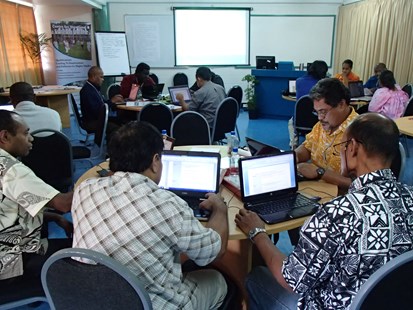
- Mas Liza Maslan, Parliamentary Research Officer at the Parliament of Malaysia, writes about the role of Parliamentarians in unlocking the potential of Commonwealth youth via innovation.
Since the beginning of the 21st century, there has been a notable transformation in the youth demographic, characterised by increased participation of young individuals in higher education and employment. Hence, to achieve success, Parliamentarians must develop a deeper understanding of the desires and expectations of the younger generation.
Recognising the challenges these young individuals encounter is imperative, and policymakers must strive to cultivate a conducive environment that nurtures their growth and progress. For example, India, which encompasses approximately 356 million individuals, is not only the largest democracy globally but also a member of the Commonwealth. Harnessing the potential of this group is thus crucial for societal progress, economic growth and environmental sustainability.
Read the full article in The Parliamentarian by clicking here.
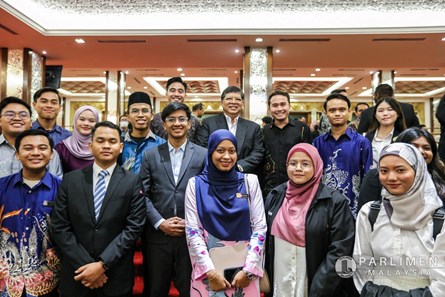
- The CEO of The Young Foundation, Helen Goulden, calls on Parliamentarians and Parliaments to recognise the lasting, valuable impact when young people participate in social action and policy change.
The active participation of us all - young or old, working across boundaries, in collaboration to tackle shared challenges - is necessary for any successful future, and the critical need to enable participation is endemic across populations, sectors and governments.
Yet with around a third of people claiming they would not help someone in need if they disagreed with their point of view, not only do younger people live in a world of uncertainty and deep challenge, it's one where the foundations of political comity and the threads of social fabric are being actively eaten away; accelerated by algorithmic communication - and people and groups for whom chaos is a ladder.
These burgeoning innovative practices have a profound and important role in reinvigorating civic, social and democratic participation of young people across the Commonwealth in three ways: firstly, through building a belief in individual young people that they can make a difference to some of the injustices and challenges they see around them.
Secondly, that young people and particularly children can participate in serious and high-impact decisions and trade-offs, which have historically created polarised and ideological entrenchment.
And thirdly, that through creating opportunities – and accepting young people’s chosen channels - for creating social change, an entirely new kind of policymaking can emerge.
Read the full article in The Parliamentarian by clicking here.
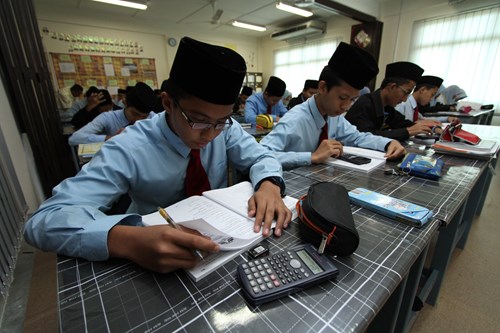
According to UNESCO data*, 258 million children and youth still do not attend school; 617 million children and adolescents cannot read and do basic maths; fewer than 40% of girls in sub-Saharan Africa complete lower secondary school and some four million children and youth refugees are out of school. This situation has only been accelerated under the COVID-19 pandemic in recent years.
The Secretary-General of the Commonwealth Parliamentary Association, Stephen Twigg, a former Education Minister, said:
“Commonwealth Parliamentarians recognise the importance of young people and their education. This is enshrined in the Commonwealth Charter and 2030 UN Agenda for Sustainable Development. Many Commonwealth Parliaments and Legislatures are playing their role by providing resources and activities for schools and educators which are needed more than ever.”
Education resources for Parliaments
The Commonwealth Parliamentary Association (CPA) has a range of resources available to support civic education on democracy, Parliaments and the Commonwealth. For example, the CPA’s Engagement, Education and Outreach Handbook for Commonwealth Parliaments provides guidance on why and how to engage, educate and communicate with the public on the role, work and importance of Parliaments as relevant and sovereign institutions.
Download the Handbook
The CPA also contributes to the education of young Commonwealth citizens through its annual Commonwealth Youth Parliament, which gives 18–29-year-olds across the Commonwealth the opportunity to debate contemporary policy issues and learn about the functioning of parliamentary democracies.
The 11th Commonwealth Youth Parliament was held in Trinidad and Tobago with 52 young people from 31 Commonwealth jurisdictions taking part in a three-day mock Parliament to debate the future of working practices.
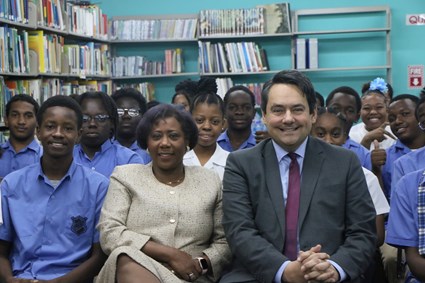
Above: During his visit to Trinidad and Tobago for the Commonwealth Youth Parliament, the CPA Secretary-General also accompanied the Speaker of the House of Representatives, Hon. Bridgid Annisette-George, MP and Hon. Keith Scotland MP on a visit to Woodbrook Secondary School to speak to young people about the Commonwealth.
In another example, the Parliament of New Zealand’s Education team launched a new toolkit for secondary schools on ‘Democracy's Response in a Crisis’. Examining the powers that were brought in by the New Zealand Government last year to combat COVID-19, the toolkit aims to help students understand the role of democracy in the current pandemic.
The International Day of Democracy is celebrated around the world on 15 September each year. It was established through a resolution passed by the UN General Assembly in 2007, encouraging governments to strengthen and consolidate democracy. Past themes have included stronger democracies, the importance of democracy for the 2030 Agenda for Sustainable Development, strengthening the voices of citizens, dialogue and inclusiveness, accountability, and political tolerance.
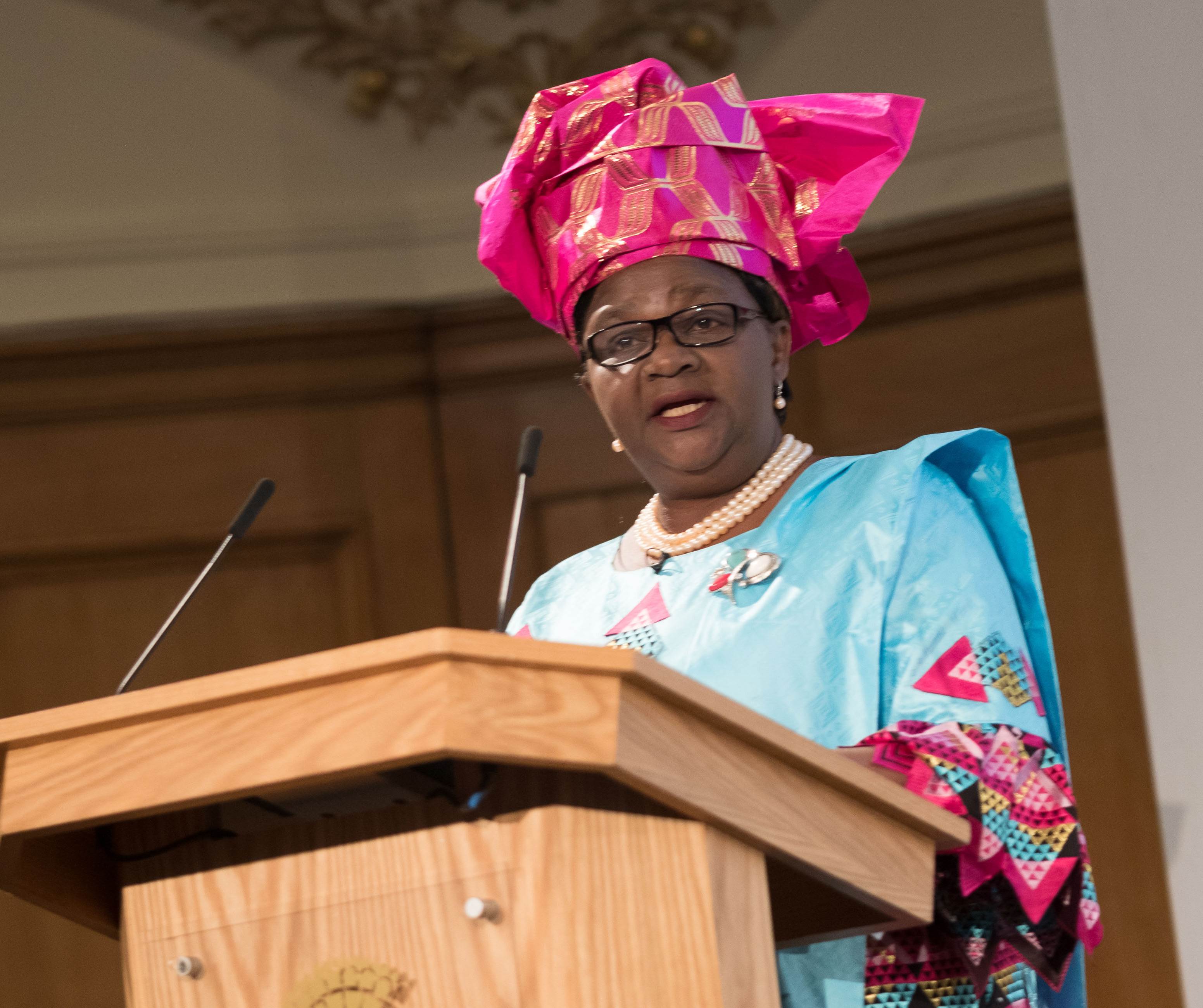
Inaugural Lifaka Lecture to focus on education theme
The inaugural Emilia Monjowa Lifaka Lecture will take place at the 66th Commonwealth Parliamentary Conference in Accra, Ghana, in memory of the late Chairperson of the CPA International Executive Committee and Deputy Speaker of Cameroon.
The Lecture is intended to provide a fitting tribute to her work. A keynote address will be delivered by the Chief Executive Officer of the Commonwealth Education Trust.
The inaugural Lifaka Lecture is supported by the International Parliamentary Network for Education (IPNEd).

